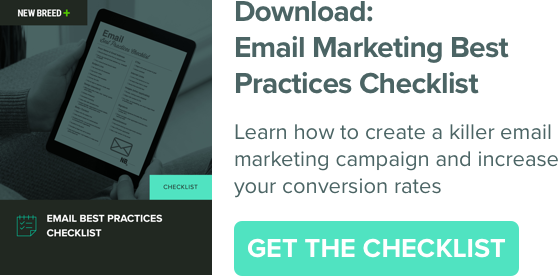
Your email marketing strategy is a critical part of your success. But planning out every detail of your segmentation strategy and automation triggers won't get you too far if you don't have the email quality to back your plan up. These five simple steps will get your emails up to the quality demanded by your planning, so your emails won't dull your strategy's shine.
Making Your Email Marketing Strategy Work
Step 1. Decide what email clients you need your email to render in
All email clients support different aspects of CSS, and not all CSS is compatible with every email client. Choosing a list of those clients that must allow your email to render will help dictate what you can and can’t do within your email. For example: If you wanted to use a background image for a banner but you were also committed to having your email render properly in Outlook, you may need to ditch the background image and choose a background color instead.
To find out which clients support what, use this guide from Campaign Monitor. The fact is, you won’t be able to make your email look perfect in all email clients, so choosing your list will help you stay focused. As Campaign Monitor summarizes: "Pixel perfection in all email clients is a pipedream!"
Step 2. Use .gifs
Fortunately, the email clients you do choose are more likely to support .gifs than they are to support actual video content. Gifs are a great content choice because they don’t have audio and they’re smaller than videos, making them quicker and easier to load. Using a .gif also adds an engaging effect to the banner, providing some moving content to pull your reader in.
With a .gif, you have the opportunity to tell the animation’s story in the first image. If for any reason a reader can’t load the entire .gif, they’ll still have access to the whole message. It can be difficult to show clients during the design process how this will appear, but utilizing .gifs is a good way to bump your email content to the next level.
Step 3. Content > Design
Though brilliant email design is definitely a factor in how people respond to your email, ultimately, content reigns supreme. The average person has under two seconds to click into the email, so you need to catch them with content first. But companies tend to over-invest in design and under-invest in content, placing the way something looks as a higher priority than what it says. Your email recipients won’t do the same: the message is what matters most.
Step 4. Keep the design simple
When it comes to design, simple is just fine. Not only does a simple design increase the probability your email will look good across email clients, it also helps your message stand out, and is likely to allow your email recipient to make the connection to your greater brand. Your design should match the general look and feel of your site and other brand materials.
In an email, start with the F shape concept. Start at the left and go across the top, using the same standard design principles you’re familiar with.
Step 5. Take the time to QA your emails and be patient
A quality email is better than a bad one, but a bad one isn’t better than none at all. Take the time to check all of your links and images and look at your email on different devices and browsers. Test your email with images disabled so you can see the alternate text and ensure it’s correct. If you don’t get it right the first time, that’s OK. Extensive QA ensures a better end-user experience, and that’s what your email should provide.





